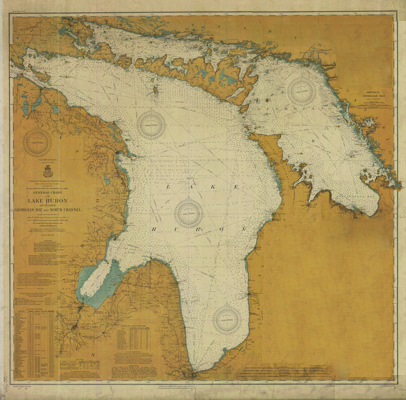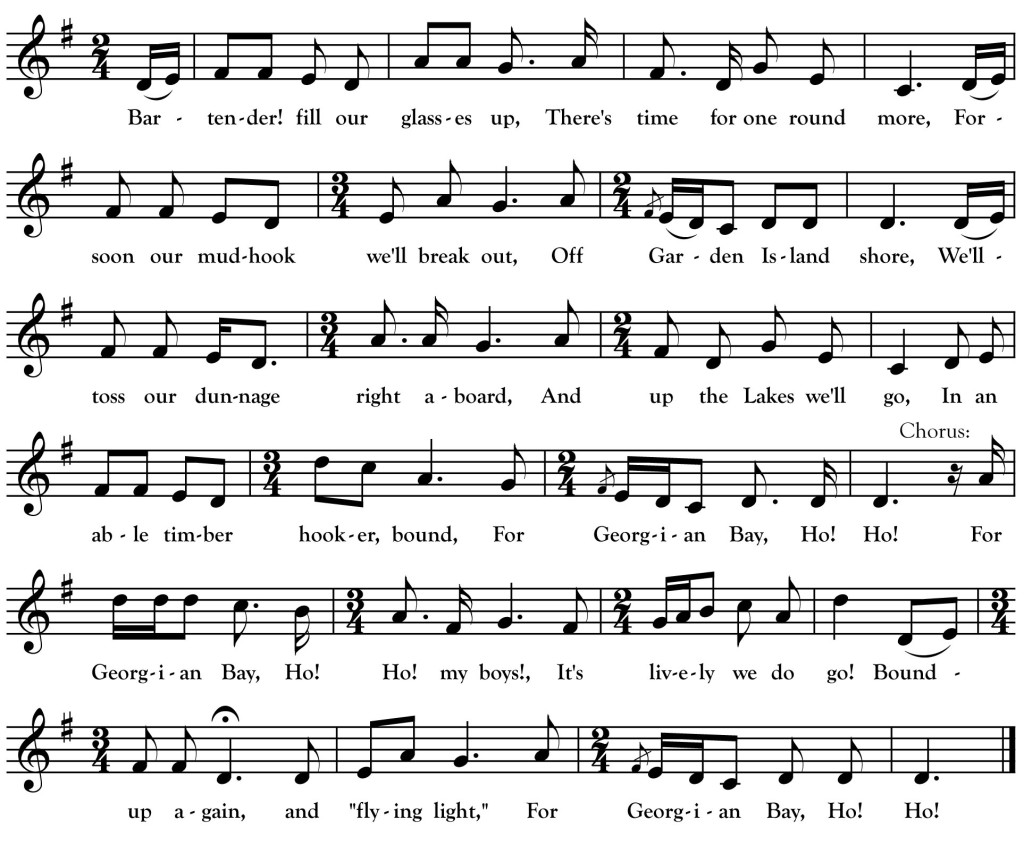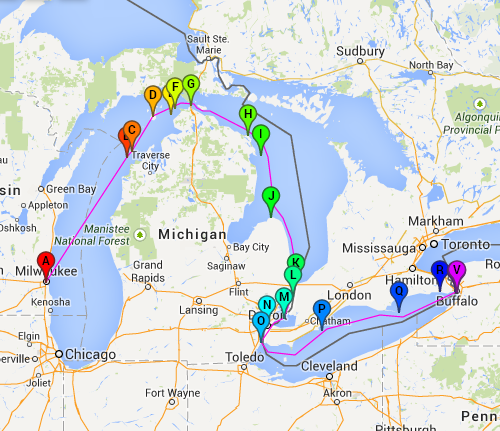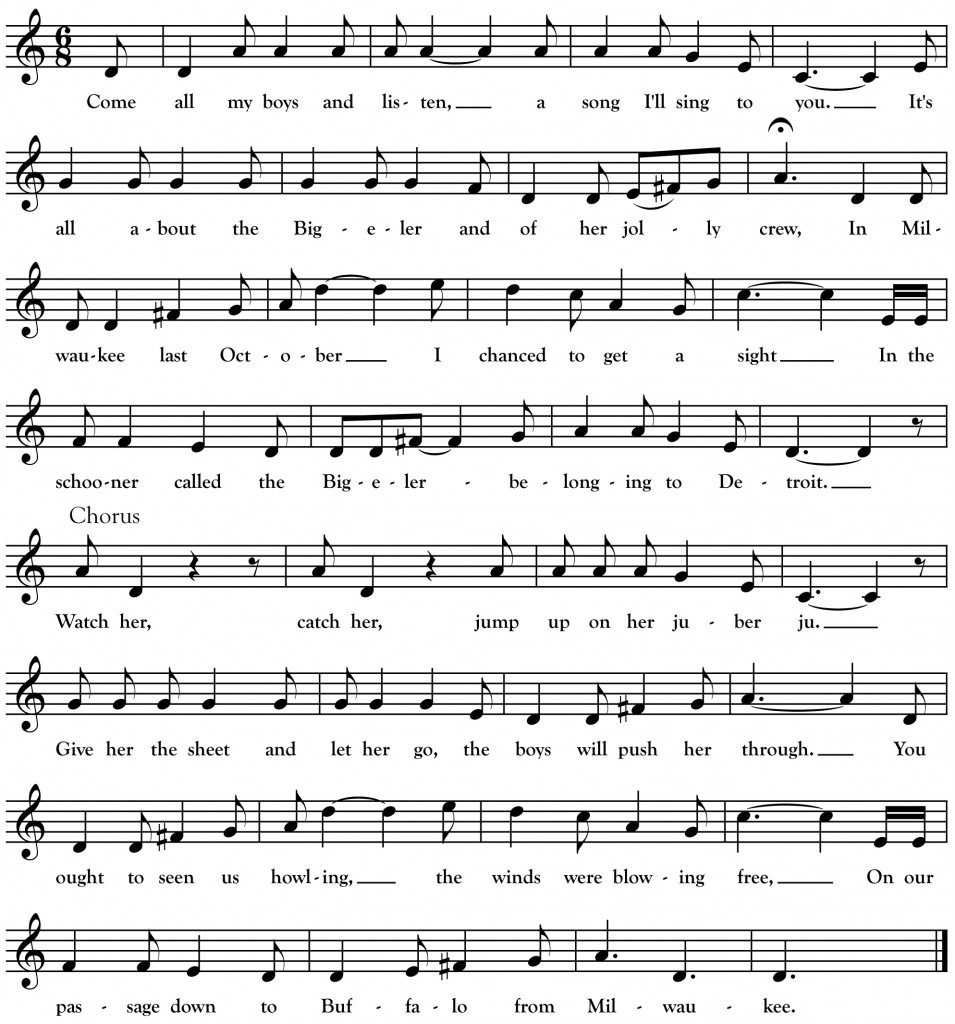Kettle River
On the banks of Kettle River, among swamps and bogs,
We’ve been busy all winter getting out logs,
To stay through to springtime it is our design,
And the firm that we work for is called the O’Brien.
Refrain: Fol the diddle eye doh right fol the dol day
There’s Billy and George, they are well known to all,
And that ragged old veteran named Old Man MacColl,
There’s two gangs of swampers whose names I don’t mind,
But I’ll never forget the name Johnny O’Brien.
Refrain
Noble Wilson is our foreman, we all know him well,
He runs through the woods, he curses like hell,
Turns us out in the morning in rain or sunshine,
And works us like blazes for Johnny O’Brien.
Refrain
He’ll pull out his watch and look up to the sun,
Saying, “Hurry up boys, let’s get this work done,
Pitch in there you sawyers and down with the pine,
We’ll all go to Hinckley when we’re done with O’Brien.”
Refrain
Charley Olson is our cook, boys, I’m telling no lies,
He’s a dandy at putting up puddings and pies,
He’ll fill you with grub till your bellies will shine,
You never go hungry when working for O’Brien.
Refrain
Hurry up boys and let’s get it all done,
The job’s nearly completed, we’ll soon all be gone,
But in years to come we will all bear in mind,
The years that we worked for old Johnny O’Brien.
Refrain
_________
In addition to the “come-all-ye” type ballads so popular in northwoods lumber camps, shanty-boys (lumberjacks) also enjoyed lighthearted, extremely localized songs celebrating, and often lampooning, the personalities found in their particular camp. Collector Edith Fowke documented numerous examples of these “camp songs” in Ontario.
The above is my own adaptation of a rare Minnesota-based camp song that originated in an 1881 camp on the Kettle River near Hinckley, Minnesota. “Kettle River” was sung “lustily” by an 88 year-old John Stewart of Port Wing, Wisconsin, for historian Agnes Larson in 1932. In her 1949 book The White Pine Industry in Minnesota, Larson wrote that “somehow the old camp came back to life in [Stewart’s] soul as he sang.” Unfortunately, some of the words did not come back to Mr. Stewart so I added a few here and there to flesh out his version. Since Larson’s book included no melody, I chose a version of a melody used for several Ontario camp songs documented by Fowke.
The boss Johnny O’Brien mentioned in the song was most likely the father of Irish-American lumber baron William O’Brien. An 1896 obituary in The Hinckley Enterprise says “John O’Brien, an old time logger, and resident of Taylors Falls, and father of Wm. And Jos. O’Brien, loggers . . . has been a prominent logger on the St. Croix for the past 40 years, the major portion of the time being in Pine County.” Like many other early loggers in this area, John was born to Irish parents in Canada and came to Minnesota following logging jobs. His son William made his first million in Pine County, lived in a mansion next door to the governor’s mansion her in St. Paul and is the man for whom William O’Brien State Park is named. I also found evidence that William was a fishing buddy of Pine County resident and singer Mike Dean who turns up frequently in this column.
I recorded this song with guitar accompaniment on my album Minnesota Lumberjack Songs.

![PrintMusic! 2004 - [Kettle River]](http://www.evergreentrad.com/wp-content/uploads/2015/12/Kettle-River-1024x735.jpg)



